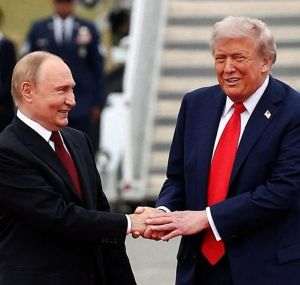Central banks play a crucial role in maintaining stability and economic growth by implementing stable monetary policies and ensuring financial stability, according to an analysis by indianexpress.com, which presents Top 10 richest global central banks in 2024, based on recent data from the Sovereign Wealth Fund Institute (SWFI).
According to the quoted source, the US Federal Reserve (Fed) is the richest central bank in the world, with assets worth 7.84 trillion dollars. Next is the People's Bank of China, with assets of 6 trillion dollars, the Bank of Japan - 5.5 trillion dollars; Bundesbank Germany - $2.77 trillion; Bank of France - 2 trillion dollars; Norges Bank (Norway) - $1.63 trillion; Bank of Italy - $1.38 trillion; Bank of England - $1.29 trillion; Bank of Spain - $1.05 trillion; Swiss National Bank - 944 billion dollars.
The total wealth of the central banks reflects the economic prospects of the respective countries, notes the quoted source.
A central bank's assets include gold, foreign currency holdings, special drawing rights (SDRs) and reserve positions in the International Monetary Fund (IMF), key indicators of a central bank's financial health. These reserves provide a buffer against economic shocks and increase the central bank's ability to manage the value of its currency.
• Europe dominates the ranking of the richest central banks in the world
European central banks dominate the ranking of the richest central banks in the world, with seven of the top ten central banks based on this continent, according to the mentioned source, which states that the combined value of the assets of the seven institutions reaches 11.09 trillion dollars.
According to the cited source, the absence of African central banks in the Top 10 can be largely attributed to challenges facing the region, such as rising inflation, fragile financial markets and a weak monetary policy transmission system.
The central banks included in the ranking are responsible for managing the world's most important and largest economies. Their substantial asset bases, but also their influence, highlight their crucial role in the global financial system.
• Central banks abandon dollars and yuan in favor of gold
The world's central banks are diversifying their reserves without dollars and yuan, preferring "a currency that does not belong to any state", gold, against the background of question marks arising due to increasingly accentuated geopolitical tensions and global economic uncertainties, according to Nikkei.
The share of the US currency in global foreign exchange reserves has fallen significantly, from more than 70% in the early 2000s, the cited source notes, noting that currently the share of the dollar in foreign reserves held by central banks and governments around the world is at a minimum historical. China's currency is also declining as a share.
Russia's invasion of Ukraine in 2022 triggered tough US sanctions that locked Moscow out of the dollar-based global financial system and persuaded emerging economies to hoard gold, which is not tied to any particular country. This transformation reflects global fragmentation, according to Nikkei.
Foreign exchange reserves are assets that central banks hold to pay off foreign debts and to cover import costs in times of emergency. Reserves also finance foreign exchange interventions. Many of these reserves are typically held in dollar-denominated assets, often in readily convertible US Treasuries.
According to the International Monetary Fund (IMF), in March 2024, the total balance of global foreign exchange reserves was 12.3499 trillion dollars, the dollar representing 58.9% of them. This is a slight increase of 0.4% from the record low recorded at the end of 2023.
The yuan, which had gained more weight after being included in the IMF's Special Drawing Rights (SDR) basket in 2016, was also down. At the end of March, the Chinese currency accounted for 2.2% of global foreign exchange reserves, down 0.7 percentage points from its peak in March 2022.
Despite the yuan depreciating by about 3 percent against the dollar in 2023, the IMF notes that even after adjusting for exchange rate fluctuations, its weight has declined since 2022.
Instead, the Australian dollar and the British pound strengthened. The Japanese yen held steady as a weight at the end of March after rising towards the end of 2023. Western countries may have shifted from the yuan to other currencies due to Russia's invasion of Ukraine, said Daisuke Karakama, economist head of Mizuho Bank. In his opinion, in response to the invasion of Ukraine, the US, Europe and Japan tried to exclude Russia from the dollar settlement networks and froze the foreign reserves of the Russian central bank deposited in the central banks of other countries. This move has led countries around the world to diversify their reserves away from the dollar and yuan, favoring assets such as the yen.
A Goldman Sachs report in April indicated that Ukraine, Norway, Brazil and seven other countries that report the composition of their foreign reserves reduced their yuan holdings from the first quarter of 2022 to the fourth quarter of 2023. In particular , Switzerland and Israel attracted significant shares of yuan.
• Gold purchases, increasing
As countries continue to diversify their reserves, gold purchases have increased. Net purchases of gold by the world's central banks in 2023 fell to around 1,030 tonnes, after a record 1,082 tonnes in 2022. 2023 was the second year in a row that these net purchases exceeded 1,000 tonnes.
In the second quarter of 2024, net purchases were about 183 tonnes, up 6% from a year earlier, according to World Gold Council (WGC) statistics, taken by the Nikkei.
China's central bank reported in July that its gold reserves stood at about 2,264 tonnes at the end of June, holding that level for two consecutive months due to high international gold prices, after increasing its reserves for 18 consecutive months, from November 2022 (+16.3%). Brazil's central bank, meanwhile, reported that its gold reserve ratio stood at 2.6% at the end of 2023, up 0.08 percentage points from a year earlier, while the yuan's rate fell 0 .57 percentage points, to 4.8%, placing China's currency in third place, behind the dollar and the euro.
India's gold reserves are also growing. At the end of July, they stood at 57.6 billion dollars, up 30% compared to the previous year. Singapore, the Philippines and other countries have similarly increased their gold holdings, according to the Nikkei.
Considering that there is no end in sight for Russia's war in Ukraine, nor for the turmoil in the Middle East, another possible geopolitical risk is looming, Donald Trump in the US presidency, according to the cited publication. If the former president regains the White House in November, the confrontation between the US and China will probably intensify. In emerging economies, fears about holding dollars could escalate further, as advances in digital finance make access to the US currency easier than ever, the quoted source concluded.



















































